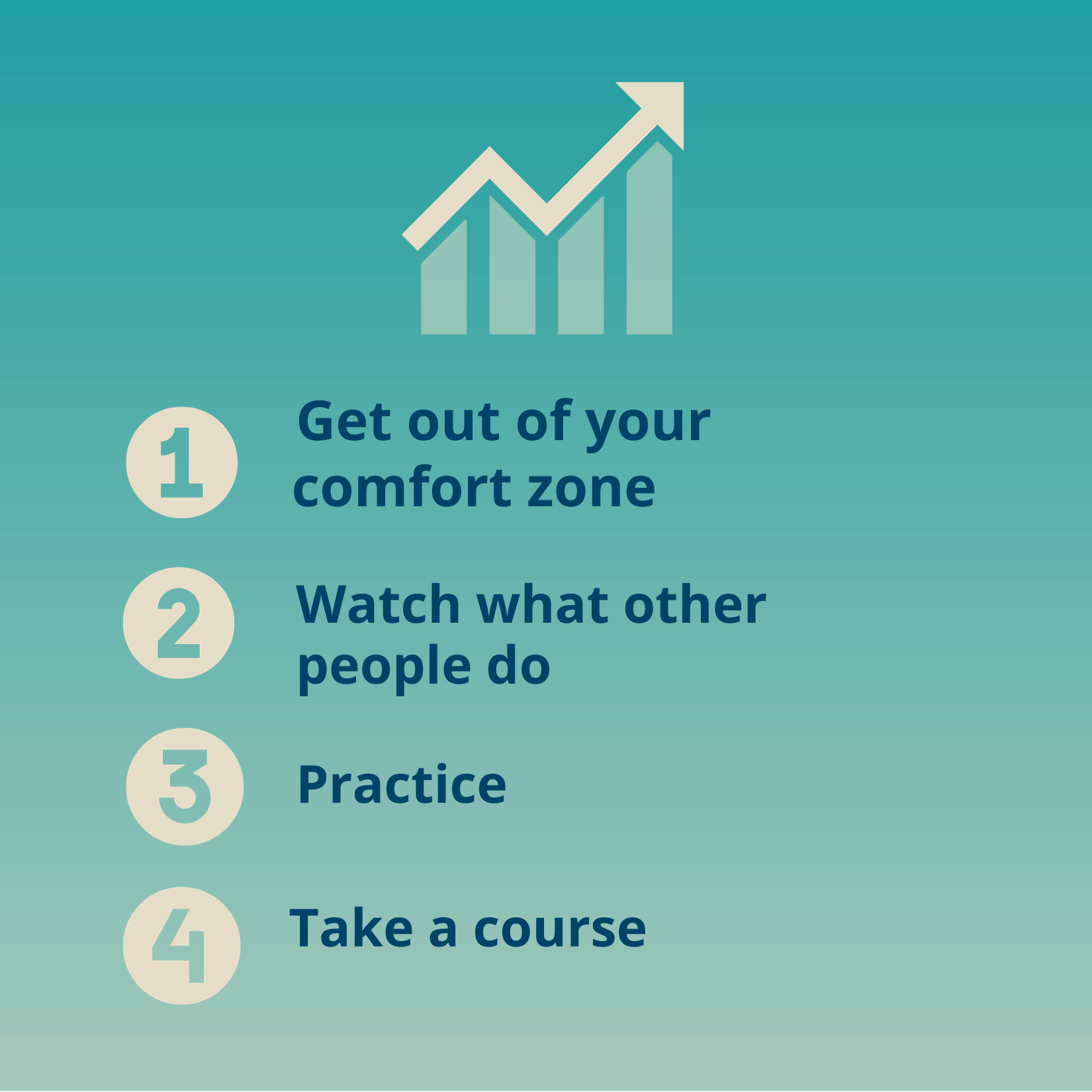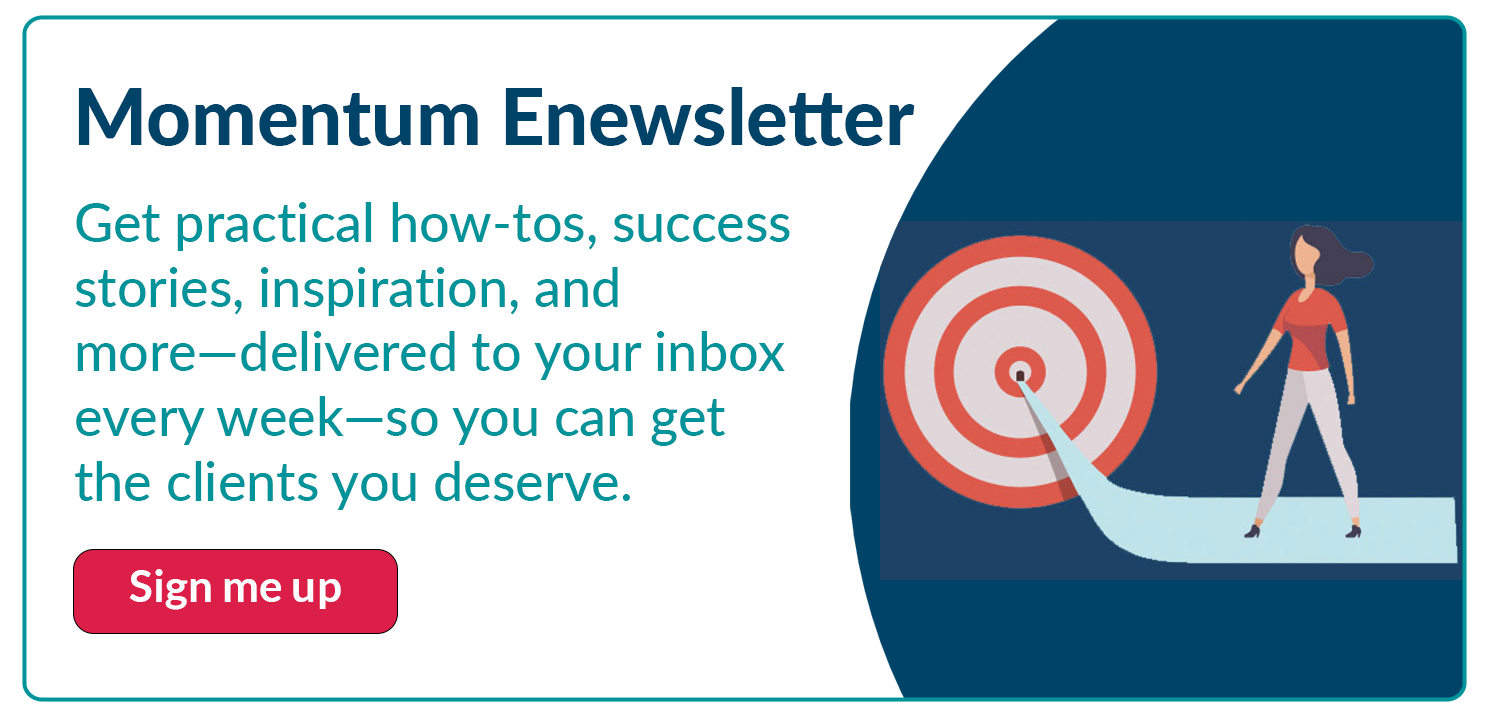Worried About AI? Improve Your Soft Skills to Stand Out
 Improving your soft skills can help you get the clients you deserve—despite the threat of AI. Learn the key soft skills for freelancers.
Improving your soft skills can help you get the clients you deserve—despite the threat of AI. Learn the key soft skills for freelancers.
We’re all hearing a lot about AI these days, and the threat it poses to freelance writers, and possibly other types of freelancers. We will lose some business to AI and the freelance writing marketplace will change a lot. But AI won’t replace good freelancers who embrace the appropriate use of AI (which I’ll cover in future blog posts) and learn how to stand out in a sea of freelancers and AI-generated content.
And one way to stand out is to master the soft skills that add value to your work with clients and help you build strong relationships with them.
What are soft skills?
Soft skills are about the way you do your work, while hard skills (like writing or editing) are about doing the work. How you interact with clients and manage your work are part of soft skills. “Soft skills are non-technical skills that impact your performance in the workplace,” says The Balance.
Why are soft skills important?
Ninety-two percent of hiring managers and talent professionals think that soft skills are just as important—or more important—than technical skills, according to LinkedIn’s 2019 Global Talent Trends report. Most respondents—89%—say that “bad hires” usually have poor soft skills.
While there are no data on clients and soft skills for freelancers, it’s logical that if the people who hire employees are looking for soft skills, then clients are too.
Along with combatting the threat of AI, soft skills help you stand out in a sea of freelancers. To many clients, one freelance writer or editor (or whatever type of freelancer you are) seems to have the same hard skills as another.
I’m going to show you the key soft skills for freelancers, how you can improve them, and how to show clients your soft skills.
Communication
Express your thoughts clearly to clients, in writing and in conversations. Show your communication skills through your marketing. If you have a clear, client-focused LinkedIn profile and website, clients will see that you’re a good communicator.
Time management and work ethic
Clients need freelancers who can deliver freelance work on time and are committed to doing great work. To do this, you need to be able to manage your time.
This was the #1 challenge of freelancers, according to How Freelancers Market Their Services: 2023 Survey Results Report.
Learn more about time management
Unlock Freelance Success Now by Making Time for Marketing
And you need to be willing to work hard and be committed to your work and your clients. A strong work ethic helps you focus on your work, behave professionally, and overcome obstacles.
Problem solving and good judgment
When clients hire a freelancer, they need you to make their life easier. One of the ways you do this is by being able to solve problems on your own and showing good judgment about what you should and shouldn’t ask the client.
Offer a solution, if possible, when you inform a client about a problem on a project. If you have a problem that you think you can solve on your own, then do it. But if it’s more than a minor problem, confirm the solution with the client before you implement it.
Good judgment includes being able to solve minor problems on your own and not continually pestering clients. If you need information or background materials that only the client can provide, then you should absolutely ask. But if you can do research on your own, then do it. And don’t send clients, for example, six emails each with a different question or request. Keep a list of questions and then send the list in one email.
Adaptability
Freelance projects often change and clients need us to be flexible. Changes could include adding new work, delaying a project, or even cancelling a project. Adaptability lets you adjust to changes.
But if the changes require out-of-scope work, inform the client before you work on them and renegotiate the fee.
Personable/likable
Being personable and likeable “is probably the most important of the soft skills in the workplace,” says Natalia Autenrieth on Top Resume. “Let’s face it: everyone wants to work with people they like.”
Confidence and a positive attitude
Confidence is a belief in yourself and your ability to succeed. Being confident helps you build trust with clients and make a great first impression. Having a positive attitude helps you be more confident.
Learn more about confidence and a positive attitude
7 Ways to Boost Your Confidence as a Freelancer
4 Ways to Become a More Positive Thinker
4 Ways to improve Your Soft Skills?

Get out of your comfort zone
If you’re most like freelancers, then you’ve probably focused on your hard skills, which are easier to build then soft skills. Doing things that are uncomfortable—like building soft skills—means you have to get out of your comfort zone. You can improve any skills if you want to and are willing to feel uncomfortable doing this.
Learn more about getting out of your comfort zone
8 Easy Ways to Do Hard Things—Like Marketing Your Freelance Business
Watch what other people do
One of the strongest ways you can improve your soft skills is by watching what other people, especially other freelancers, do. This includes paying attention to how they interact with you and other people and how they communicate by email.
Practice
Developing any skill—hard or soft—takes practice. You can practice some soft skills, like problem solving and time management, on your own. For other soft skills, like communication, practice with a freelance friend. Also, you can also practice your soft skills in low-risk settings, like volunteering for a community organization.
Take a course
Many courses related to soft skills are available online. Popular websites that offer courses where you can learn soft skills include Coursera, Lynda.com, Udemy, and edX, according to Glassdoor.
5 Ways to Show Your Soft Skills to Clients
It’s harder to show clients your soft skills than it is to show them your hard skills.

Your Brand
Highlight some of your soft skills in your logo and tagline, key client-focused marketing messages, and brand tone of voice. Your tone of voice expresses your company’s values, personality, and way of thinking.
In my brand, for example, “delivered on time, every time” in my tagline highlights time management. “Targeted medical content” in my tagline implies a work ethic and problem-solving ability. The bold tone of voice of my design and content projects confidence.
Along with helping you highlight your soft skills, having a brand helps you stand out from other freelancers. So you’ll be able to attract better clients with less marketing.
Learn more about branding
See my brand.
Stand Out in a Sea of Freelancers: Your Brand
Your LinkedIn profile
In your LinkedIn profile, highlight soft skills in Skills and About. In Skills:
- Click on your profile.
- Scroll down to Skills.
- Click +.
- Choose the skills from the list LinkedIn provides or type in a soft skill.
- Repeat for each soft skill you add.
Don’t add more than about 8 soft skills.
Highlight soft skills in About by mentioning key soft skills in your narrative. You can also include a bulleted list of soft skills, after the key information about what you do and how you help clients. Put this near the end of About, right before your call to action.
Learn more about LinkedIn profiles for freelancers
The Ultimate LinkedIn Profile for Freelance Success This Year
Your website
Like your LinkedIn profile, your website is a great place to highlight soft skills. You can do this:
- With your logo and tagline
- In client-focused marketing messages
- In testimonials (ask clients to mention how you used key soft skills in your work together)
Learn more about freelance websites
How to Win More Clients with Your Freelance Website and Do Less Marketing
Your resume
While resumes are less important for freelancers than our LinkedIn profiles and websites, some clients do want to see them. And resumes are a natural place to list soft skills. Include soft skills in your:
- Summary
- Skills section.
Limit soft skills in your summary to a few soft skills that are most relevant to your clients. In your skills section, you can include more soft skills along with hard skills.
In interactions with clients
Show clients your soft skills in emails, phone calls, and meetings (usually virtual or phone), and by doing what you said you would do when you said you would do it. When you’re interacting with clients:
- Be professional
- Communicate clearly
- Respond promptly to emails and calls from clients
- Be on time for meetings
- Meet or exceed your deadlines
- Being accountable for your work.
In phone calls and meetings with clients, be likeable, confident, and positive.

Learn More About Soft Skills for Freelancers
Content from The Mighty Marketer
Stand Out in a Sea of Freelancers: Your Brand
8 Ways to Do Hard Things—Like Marketing Your Freelance Business
Unlock Freelance Success Now by Making Time for Marketing
The Habit That Will Make You a Freelance Success
4 Ways to Become a More Positive Thinker
7 Ways to Boost Your Confidence as a Freelancer
Other Content
LinkedIn 2019 Global Talent Trends
What Are Soft Skills? The Balance
Natalia Autenrieth, Soft Skills Most Hiring Managers Look For, TopResume
Monique Danao, 11 Essential Soft Skills In 2023 (With Examples), Forbes
How to Identify and Develop Soft Skills, Glassdoor